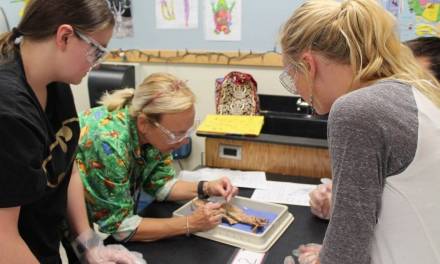In recent years there have been a number of studies commissioned to look at the importance of STEM subjects in UK schools and how teachers (and industry) can help increase and encourage students to choose a STEM career path (E.g. Royal Academy of Engineering, Wellcome Trust, University of London, Futurelab).
Science, technology, engineering and mathematics are key areas for student growth as the STEM staffing needs of UK industries are constantly growing.
It is a potentially financially rewarding career path too – in many cases, people who develop careers in STEM related fields have a higher income than those who pursue other career paths. However, it seems as though money alone is not enough to encourage the next generation to participate in STEM subjects, so how can we encourage them?
Don’t Let STEM Subjects Become Male-Orientated
In 2014, it was estimated that “fewer than 400 women were studying electronics at university“. Although this is only one graduate path for STEM students, the lack of women taking STEM related degrees is consistent across the vast majority of STEM subjects.
Although the latest statistics show a marked increase in women in STEM professions in the UK, they still make up less than 25% of the total workforce.
How can schools overcome the idea that STEM professions are gender-specific, and encourage male and female students alike to study them? As with other areas of inclusion within the school system, teachers can make their language gender-neutral, and they can also focus part of their lesson plans on women who have been successful in the subject.
Work with your local community and national charities to invite female role models into school to give inspirational talks, participate in career discussions or STEM lessons, and be a visible example of women being successful in STEM professions.
Educate Students on STEM career paths
Many younger students may think that by studying mathematics, a career path in mathematics would involve solving equations all day. Make the connection between learning and putting the theory into action by showing students what kind of jobs they could do by participating in STEM subjects. Our growing series on potential career paths is a good starting point.
Ask former students who are working in the STEM field to visit the school. They could inform students about their job or organise a school trip where students can actively learn about different STEM careers.
When discussing possible STEM subjects that a student would like to consider as a career path, ask them to look up case studies of people who have been successful in STEM-related fields. This can help them understand the scope of what can be achieved with a career in STEM.
The National STEM Learning Centre and Network provides primary and secondary STEM careers toolkits that you can use in the classroom to encourage students to consider a STEM career path.
Use Resources to bring lessons to life
There are many companies and organisations who specialise in promoting STEM subjects. They provide articles, videos, encouragement, classroom signs and tools and information for parents, students and teachers.
Introduce multimedia into your lessons, find exciting experiments to focus attention, encourage group participation and use online resources to bring STEM subjects to life.
Here are some links to resources to get you started:
- STEM resources from across the BBC for Primary pupils
- Teaching resources from STEM Learning
- A range of resources on Edutopia for engaging and encouraging STEM students
- STEM learning resources provided by the Royal Academy of Engineering
- Find free STEM resources and enter the annual STEM Challenge with BP Educational Service
- Looking for someone to can help promote STEM in your school? Wise maintains a list of organisations involved in STEM education and outreach
However you choose to motivate students to participate in STEM subjects, it is important to let the child be the leader; the teacher needs to remember to steer and appreciate the choice of the child. Make STEM interesting and approachable to all, and the students will come naturally.









